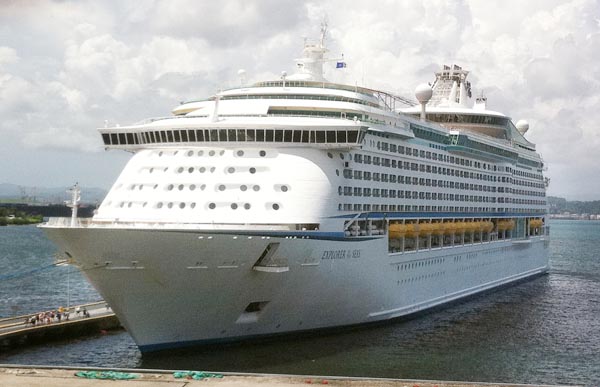New cruise ship incentives law signed

The cruise ship industry, a cornerstone of the island’s tourism economy, will be getting expanded incentives and benefits when anchoring in Puerto Rico, following the approval of a sweeping law that will also favor the distribution chain, service providers and tour operators.
The new law provides a string of incentives to spur travel agencies to sell packages to non-residents that include both a cruise and a stay in a hotel in Puerto Rico; the purchase of products in Puerto Rico, as well as the local procurement of ship maintenance and repair services; and for promoting excursions to cruise ship passengers.
“This new Puerto Rico Law for the Promotion and Development of the Cruise Ship Industry reaffirms and strengthens the importance of the island as a regional and global ‘home port,’ it will increase cruise ship traffic to Puerto Rico and will increase the stay of cruise ship passengers at hotels in all regions and municipalities of Puerto Rico, and all the islands in its archipelago, Vieques, Culebra and others,” said Economic Development and Commerce Secretary José Pérez-Riera.
Puerto Rico’s cruise ship industry pumps $245 million a year into the economy, bringing some 1.2 million passengers annually to island shores. The sector generates more than 4,000 direct and indirect jobs, EDC statistics show.
The new law seeks to simplify the industry’s dealings with the government, particularly when it comes to obtaining the promised incentives. For that reason, the mandate creates two funds, one to be managed by the Puerto Rico Tourism Company and another to be managed by the Ports Authority.
“Tourism Company currently manages a fund, and requests information from the cruise ship, which also had to supply the same information to the Ports Authority. Now this process will be more efficient, transparent and simple,” Pérez-Riera said.
Meanwhile, he said the new mandate will enable the island to increase visits and passenger volume while boosting consumption by visitors and crew. Those expenditures include the costs of purchasing goods for the anchored ships.
“We want to generate and increase the benefits for different segments of Puerto Rico’s economy directly and indirectly linked to the cruise ship industry, offer fair incentives to all cruise lines and create an alliance with each of the cruise lines to maximize the promotion of Puerto Rico as a tourist destination, and improve the relationship with the cruise industry in general,” the public official said.
For decades, the cruise ship industry has been a major component of the island’s tourism and its economy and for the image it creates for Puerto Rico as a key port for the global cruise market.
“Royal Caribbean Cruises Ltd., which has a 40-year relationship with Puerto Rico, celebrates and applauds the Puerto Rico government’s efforts in support of the cruise industry,” said Michael Ronan, vice president of government relations for Royal Caribbean for the Caribbean, Latin America and Asia markets. “This new incentive law is a positive step in the government’s efforts to strengthen the competitiveness of Puerto Rico in the cruise industry.”
The cruise ships incentive program, which expired June 30, was reassessed with industry members and the consensus was that it had to include other key segments within the cruise ships industry, namely the supply chain, service providers and tour operators, Pérez-Riera said.
The incentives apply to all of the island’s ports.














